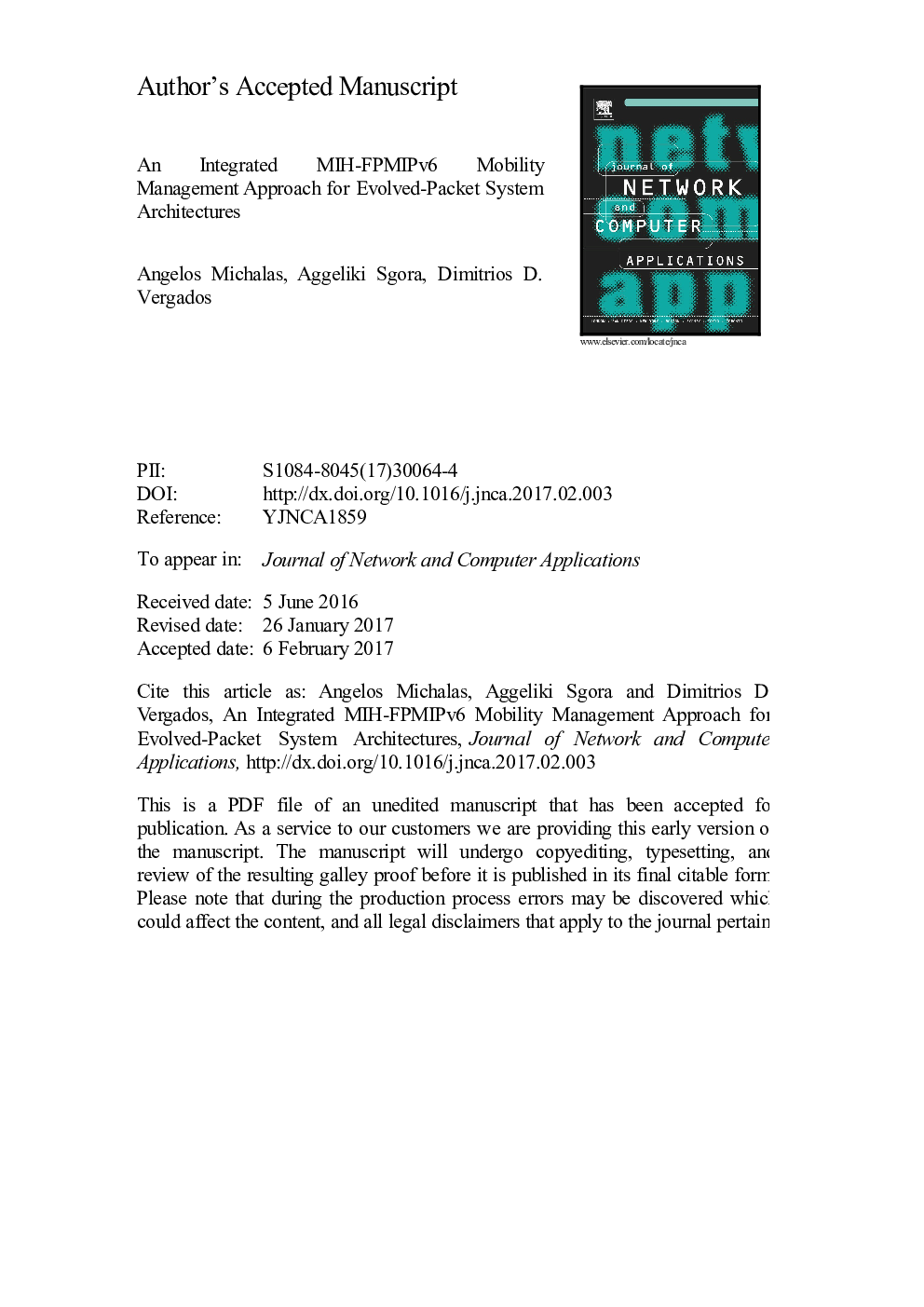| کد مقاله | کد نشریه | سال انتشار | مقاله انگلیسی | نسخه تمام متن |
|---|---|---|---|---|
| 4955840 | 1444369 | 2017 | 56 صفحه PDF | دانلود رایگان |
عنوان انگلیسی مقاله ISI
An integrated MIH-FPMIPv6 mobility management approach for evolved-packet system architectures
دانلود مقاله + سفارش ترجمه
دانلود مقاله ISI انگلیسی
رایگان برای ایرانیان
موضوعات مرتبط
مهندسی و علوم پایه
مهندسی کامپیوتر
شبکه های کامپیوتری و ارتباطات
پیش نمایش صفحه اول مقاله

چکیده انگلیسی
Following the Always Best Connection (ABC) principle of the 4th generation wireless networks users of mobile services would be provided with connectivity to the best access technology all the time. In such a context, mobile devices are equipped with multiple radio interfaces allowing connectivity to the most suitable network environment based on users' requirements and operators' policies. Seamless vertical handover plays the key role for mobility across various access networks offering service continuity to users. The Evolved Packet core (EPC) network architecture of the 3GPP (Third Generation Partnership Project) provides optimized mechanisms to achieve Vertical Handover (VHO) using the Fast Proxy Mobile IPv6 (FPMIPv6) mobility management standard. However the EPC solution fails to provide seamless handover for real time applications due to lack of information when the source and the target networks are on different domains as well as due to existing limitations in FPMIPv6. The IEEE 802.21 Media Independent Handover (MIH) framework is another promising standard which facilitates the VHO procedures by providing generic interfaces and primitives independent of the access technology. In this paper a seamless handover solution is proposed between 3GPP (Third Generation Partnership Project) and non-3GPP wireless access technologies which includes several signaling enhancements complementing the functionalities of the EPC network of the LTE-A with the IEEE 802.21 standard. Also an improved FPMIPv6 scheme is included, addressing the identified shortcomings of the protocol. The presented architecture provides low latencies, supporting services QoS constraints, as well as user requirements and provider policies. The proposed framework is compared with the existing EPC approach while a comparative analysis and evaluation of the enhanced FPMIPv6 is provided.
ناشر
Database: Elsevier - ScienceDirect (ساینس دایرکت)
Journal: Journal of Network and Computer Applications - Volume 91, 1 August 2017, Pages 104-119
Journal: Journal of Network and Computer Applications - Volume 91, 1 August 2017, Pages 104-119
نویسندگان
Angelos Michalas, Aggeliki Sgora, Dimitrios D. Vergados,